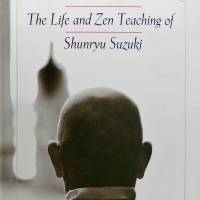Shunryu Suzuki, author of the influential "Zen Mind, Beginner's Mind," is credited with introducing Zen to the West and founding California's first Zen Buddhist monastery.
Crooked Cucumber, by David Chadwick.
468 pages
Harmony, Nonfiction.
In David Chadwick's biography of Suzuki, "Crooked Cucumber," he mentions an incident that deftly captures his subject's character: In 1940, Suzuki was invited to join an organization promoting a patriotic form of imperial Buddhism. Though appalled by the ultranationalism sweeping the country, he decided to accept the offer — but resigned a day later. The tactic succeeded in ensuring he avoided the personal discredit of supporting a doctrine antithetical to Buddhism, but also ensured his own temple did not lose face.
Suzuki arrived in San Francisco in 1959 to minister to a flock of Japanese residents, but he was also convinced that Westerners were capable of embracing Zen Buddhism. A modest, softly spoken figure, Suzuki is remembered as a generous, wise and, at times, humorous man. Chadwick, who knew Suzuki well, notes that he, "had a way with things — plants, rocks, robes, furniture, walking, sitting — that gave a hint of how to be comfortable in the world."
Drawing on Suzuki's own words, the memories and anecdotes of friends, family and former students, as well as unpublished material from his talks, Chadwick succeeds in placing Suzuki in the company of other highly charismatic Zen masters, such as Ryokan, Hakuin and Ikkyu.


















With your current subscription plan you can comment on stories. However, before writing your first comment, please create a display name in the Profile section of your subscriber account page.